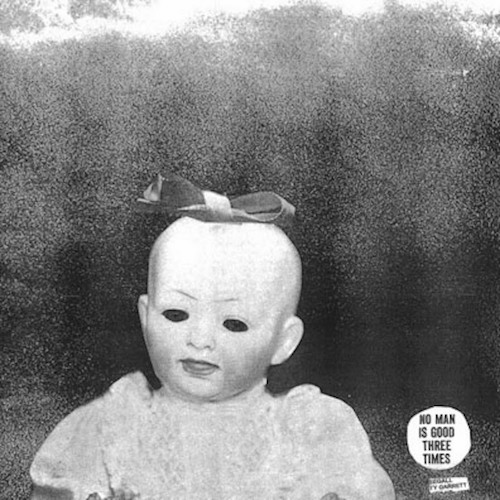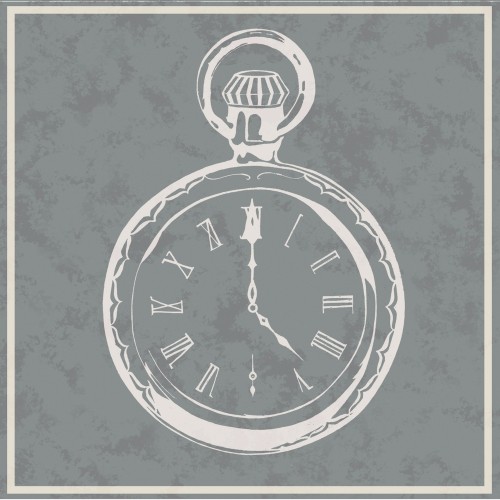 Release Date: December 6th, 2011
Release Date: December 6th, 2011





Listen down The Black Keys catalog—it spans 10 years. That may be hard to believe, but yes, that odd-fangled Akron, Ohio, duo has been around for a decade. It may have been a decade sprinkled in forgettable mediocrity, fizzling singles, a hip-hop album, film soundtracks, Magic Potion, but the good times resoundingly drowned out the bad. For the most part, The Black Keys never faded from our minds, and that’s testament to a near-impossible staying power in an attention-deficit era of music.
The band’s seventh album has big boots to fill. Brothers was an almost universally lauded rock album pairing intricate arrangements and an inspired artistic direction. The Black Keys reached a place where their sound was mature, full-bodied and instantly recognizable. While the special effects flourished and instruments joined the roster, the core remained the same. It’s an ineffable way to grow as a band.
As always, it had its roots in the blues of yore, featuring Dan Auerbach’s sour howl over tight, screaming guitar and the buoyant beating on the skins by Patrick Carney. The boys have come a long way from their minimalist beginnings. YouTube, in its most recent Music Tuesday claims the band “made messy rock a religion.” Junior Kimborough’s widow told Auerbach of their tribute Chulahoma, “You’re about the only one who plays like Junior played.”
Although Auerbach and Carney aren’t quite as “messy” as they were in the early days (recording an album in a 14-hour super session, or in a Rubber Factory), El Camino maintains that raw grittiness that, without, the band would not be The Black Keys. It rode in on a horse called, “Lonely Boy,” a dirty, upbeat ditty led by its slippery riff and sticky chorus. Danger Mouse has now fully entered the equation, putting his rootsy production shine on the album, which he also helped write. He’s still a little in spaghetti mode—“Dead and Gone,” could be a lost tape from Rome—but it’s well-hidden.
A lot of the rawness comes from the eye for detail, using both channels and preserving the roughness of what’s played. You can hear the guitar strings buzzing on “Little Black Submarines,” which begins with a fingerpicked acoustic head where Auerbach sings, “Everybody knows that a broken heart is blind.” The song stops, then jolts back in with an operatically heavy electric finale. The question begged in an otherwise lyrically sensical song: “What are little black submarines?” There are more instances, “Gold on the Ceiling,” is a euphemism for what, exactly? Ah well, it’s easily forgiven by its electric shuffle that pulses under it; it’s the polished, gritty feel that smacks of the Keys’ latest sounds.
El Camino keeps the mastery of texture, layering, the nuance (you can hear Charney’s spontaneous cries in the background) but lacks the magic. Brothers, for every feelgood rocker in the beginning had its long, brooding gut that really brought the listener and rubbed their face in the shit. El Camino is devoid of that—every song is rough and tumble, bouncing happily along, organs sprucing up the space, till it’s out of sight. And out of sight it stays.
The album is at once The Black Keys’ biggest pop step but also their least immersive. Some might cite that as a plus; it’s a trigger-happy, energetic haze but also a skittish, tongue-in-cheek rocker epitomized by the riffiness of “Run Right Back.” Rock’s the thing. The conclusion for The Black Keys post-“Colbert Report” appearance (making fun of their own sellouts) seems to be that they are now a rock band, neé blues. Nevertheless, when was the last time you saw two white boys from Ohio make a bid at blues immortality?
The Black Keys – El Camino tracklist:
- “Lonely Boy”
- “Dead and Gone”
- “Gold on the Ceiling”
- “Little Black Submarines”
- “Money Maker”
- “Run Right Back”
- “Sister”
- “Hell of a Season”
- “Stop Stop”
- “Nova Baby”
- “Mind Eraser”


